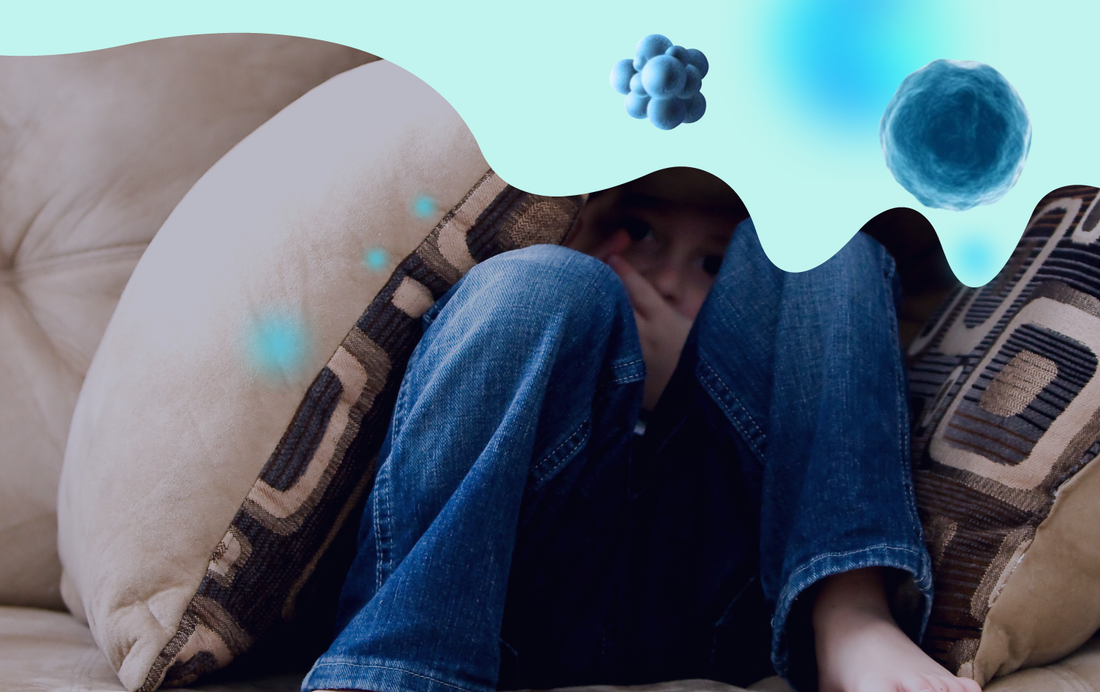
Can the Health of the Microbiome Affect Depression in Kids?
Share
Depression Is Becoming an Epidemic!
Thanks to the CoV-2 (COVID) pandemic and the ensuing social isolation, school closures, loss of friendships, and stressed families, depression has become exceedingly commonplace amongst children.
But even prior to COVID, depression has been found to affect adolescents in every age category with at least 16% of U.S. children reporting depression at some point. Teens have even higher rates of depression, and suicidality is now the THIRD leading cause of death in people ages 10-24!
Feeling the Blues or Clinically Depressed
There is a differentiation between a depressed mood—just feeling blue—and clinical depression. But BOTH are important because they interfere with a child’s capacity to function.
Here are 9 Common Symptoms of Depression to Watch For:
- Helplessness
- Guilt
- Hopelessness
- School Avoidance/Indifference
- Self-Loathing
- Loss of energy
- Appetite changes
- Sleep disruptions (insomnia or an inability to get out of bed)
- Suicidal thoughts and ideation.
Anxiety can also manifest as a symptom, but it is now being considered as a comorbidity with depression. The following graph depicts depression, anxiety, and behavior disorders by age:

Treatment Options for Depression
The conventional thinking about depression is that it is a “mental disorder,” and so various forms of psychotherapy and pharmacologic prescriptions become the go-to treatment. Want to see something truly shocking? Look at the number of children in the U.S. that were prescribed antidepressants in 2019!
Antidepressants: 0–17 years 2,148,971
0–5 years 33,043
Age Breakdown: 0–1 years 7,821
2–3 years 11,174
4–5 years 18,837
6–12 years 560,477
13–17 years 1,581,361
While psychotherapeutic intervention is often required, there are other treatment options to consider regarding the management of depression: Neurobiotics!
Well, What Are Neurobiotics?
Put simply, neurobiotics (they are actually called psychobiotics) are probiotics that affect mental health. Probiotics are used to heal the gut microbiome and neurobiotics have added species of bacteria that specifically target neural function. Neurobiotics regulate the neurotransmitters (chemicals involved with transmission of neurologic information) which play a role in controlling the neural excitatory-inhibitory balance of mood, learning, memory, and executive function.
I prefer the term “neurobiotics” to “psychobiotics” because it indicates a relationship between the gut and the brain. Researchers have determined that we have a Gut-Brain Axis (GBA) that connects our brains with our microbiome. So, it makes sense that the health of the microbiome would greatly affect the central nervous system via this GBA.
So, How Do Neurobiotics Work? Neurobiotics regulate the neurotransmitters (chemicals involved with transmission of neurologic information) which play a role in controlling the neural excitatory-inhibitory balance of mood, learning, memory, and executive function.
There are many different types of neurotransmitters involved in this process, but the main ones include:
- Serotonin
- Dopamine
- GABA
- Norepinephrine
- Acetylcholine
Specific species of bacteria such as Lactobacillus brevis, L. plantarum, Bacteroides spp. and Bifidobacterium dentium all produce GABA and serotonin. Additionally, serotonin synthesis is regulated by spore-forming bacteria from gut enterochromaffin cells.
Many studies are now reporting that these neurotransmitters are synthesized by microbes and is appears that 50% of dopamine and 90% of serotonin are found in the gastrointestinal tract (GIT).
It also appears that specific organisms/strains matter. There are now products carrying specifically Lactobacillus plantarum PS128, for example, which in one study showed:
- Reduced depressive behaviors in mice
- Reduced serum corticosterone
- Reduced inflammatory cytokine levels
- Increased dopamine in the prefrontal cortex and
- Increased serotonin
Additionally, beneficial microbes may increase brain derived neurotrophic factor (BDNF), which is a natural antidepressant and can stimulate the formation of new brain cells in animal studies.
So, taking specialized probiotics (neurobiotics) not only heals the gut microbiome, but in turn, supports healthy brain function.
It is time to move away from the constraints of thinking about depression as just a “mental” disorder of the brain and reconsider it in a holistic manner—one that involves the microbiome.
No Magic Cure
It is, of course, overly simplistic to state that there is a magic cure for depression and that happy bugs (probiotics) will turn around this very serious and impactful disorder.
But a good place to start is by rebuilding and balancing neurochemical stores. Here are 4 easy ways to accomplish this:
- Dietary changes: What we feed our children, and subsequently their co-inhabitant microbes, makes a big difference in achieving a balanced microbiome.
- Add fermented foods to the diet: These are a key component of GI health and slow incorporation into kids’ diets can offset picky palates.
- Avoid pesticides: These chemicals destroy healthy microbes and contribute to an unbalanced microbiome.
- Take probiotics and/or neurobiotics: These supplements are specifically formulated to increase certain beneficial populations of microbes and are an important therapeutic tool in the treatment of depression.
There are also many other simple ways that can help to improve the health of our kids’ microbiomes and stave off depression. These can easily be incorporated into daily regimes:
- Alkalinizing the diet (with veggies!)
- Morning lemon juice in water (kids may need a hint of honey to start)
- Hydrating (with filtered water)
- Sweating: Our kids need to move and play!
Microbes can affect mood. Therefore, an abnormal or imbalanced microbiome can lead to lowered production of the chemicals necessary for balancing mood, subsequently leading to depression as well as gastrointestinal disorders.
Focus on a healthful diet and add high-quality, 100% spore-base probiotics and neurobiotics to help children regain gut/brain.

Dr. Michelle Perro, MD, DHOM
Integrative Pediatrician
With over 38 years in acute and integrative medicine, Dr. Perro is a veteran pediatrician. Over fifteen years ago, she revolutionized her clinical practice to integrate pesticide and health advocacy. During her long career, she both directed and worked as an attending physician in New York’s Metropolitan Hospital and UCSF Benioff Children’s Hospital Oakland. She has also managed her own company, Down to Earth Pediatrics, which innovated a new field of integrative urgent care medicine. Dr. Perro co-authored the acclaimed book, What’s Making our Children Sick, has authored numerous publications, and writes a new column in the journal, Townsend Letter. Currently, she lectures, consults, works at the Northern California integrative health center, Gordon Medical Associates, and is Executive Director of the non-profit scientific-based website GMOScience.org.
Collective members are paid sponsors and receive compensation for their content, but all opinions are their own.
